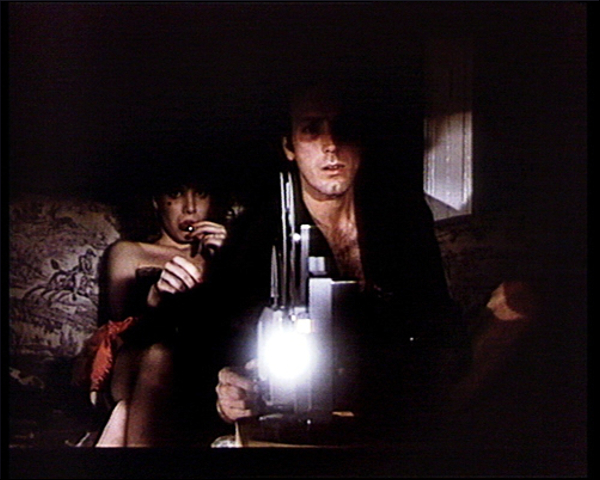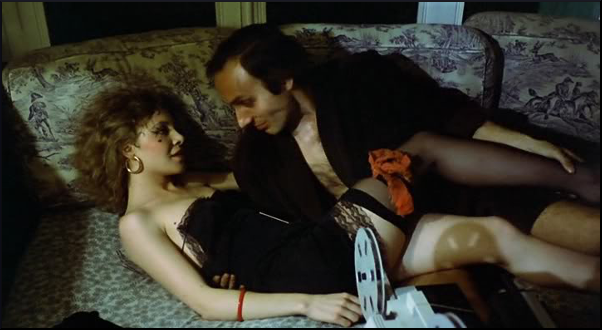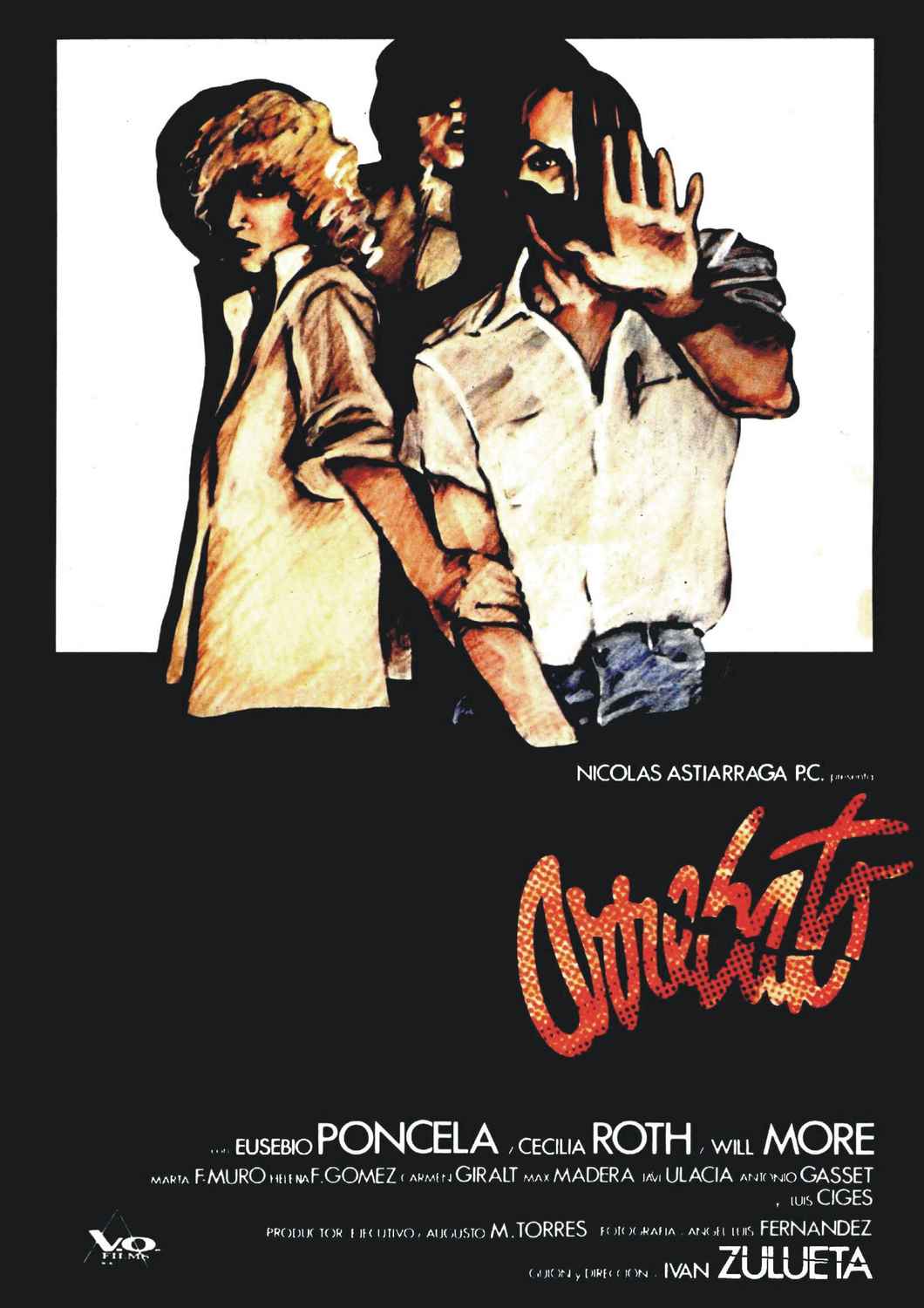There is no way of talking about Arrebato (Rapture) without recalling the personality of its director, Iván Zulueta, the Spanish enfant terrible. His life and career, which ended with his death in 2009, have merged with the narrative of his film, which has become a kind of personal testament. It was the second and last feature he ever made, as the Basque filmmaker has become more famous as a designer of movie posters, such as the ones he did for the works of fellow Spanish director Pedro Almodóvar.
"At the time Rapture got made, Zulueta was living it up like there was no tomorrow, and after securing funding from an architect friend with artistic sensibilities, he kick-started a film shoot in which drugs, improvisation, and free-flowing spirits ran amok."
In Rapture, Eusebio Poncela plays José, an obvious surrogate for Zulueta. He’s a director of horror films who struggles to complete a vampire movie while constantly getting high on cocaine and speedballs. One day, he receives an 8mm reel and an audio tape from Pedro, an old friend he met while scouting for locations. Pedro is a young kid in love with cinema, who made experimental shorts about the “finca” (rural estate with a large house or cottage) he lived in. The only actor in these shorts is his elderly aunt. Through flashbacks, we learn how the relationship between José and Pedro developed, and we realize that they are friends – or mentor and pupil – for one simple reason: nobody else loves movies as purely as they do. In the present time, as José – and the audience – watches the 8mm footage Pedro shot while travelling around the world, we enter a second film, an almost existentialist horror movie in which vampires, cinema, and drugs all find common ground.

Spanish cinema during the 1980s was significant because of its taboo-breaking themes and attitudes, after decades of censorship under Franco’s dictatorship. This was all part of a larger socio-cultural phenomenon, known as “La Movida Madrileña” (The Madrilenian scene), an era of liberation and excess that spotlighted elements of Spanish society that had previously been repressed by the military regime, namely, gays and lesbians, drag queens, party boys and girls, and drugs. At the time Rapture got made, Zulueta was living it up like there was no tomorrow, and after securing funding from an architect friend with artistic sensibilities, he kick-started a film shoot in which drugs, improvisation, and free-flowing spirits ran amok. The result is what, in Spanish, is known as a “película maldita,” which could be translated as a “cursed film,” something that is shunned by mainstream film criticism but earns a strong fan base among those who are game for its unique and trangressive qualities.
Rapture is not a masterpiece and it is doubtful one could find anyone who would seriously call it that. But it is an honest film with some very inspired ideas. For example, the experimental 8mm films Pedro makes are the real thing, works of art in their own right and the kind of shorts Zulueta was making at the time. Furthermore, the movie’s abrupt, third-act twist into fantasy – or, more accurately, into literal metaphor – might be too much for many audience members. A lot of good movies have been made about drug addiction. Most of these were filmed by casual drug users or by directors whose years of abuse were behind them, like Martin Scorsese with Goodfellas or Casino. This movie, though, which treats cinema like a narcotic substance, was made from the belly of the beast. Shades of the surreal films of David Lynch and David Cronenberg might be seen, and the central premise is strongly reminiscent of Cronenberg’s Videodrome, in which the protagonist is literally sucked into a television set. When the film ended, this reviewer could only wish that Zulueta had cleaned up his act long enough to make some more films, because Rapture is nothing if not promising. A promising mess.
"When the film ended, this reviewer could only wish that Zulueta had cleaned up his act long enough to make some more films, because Rapture is nothing if not promising. A promising mess."
Students who are just beginning to learn Spanish are not advised to watch this film, unless, of course, they are already familiar with Spanish slang. The type of vocabulary used by the characters is so characteristic of its time and place – 1980s Madrid – it even has a name, “cheli,” and several words have even entered the dictionary of the Real Academia Española. The entire movie was dubbed in post-production, likely because of recording shortcomings. One curious little detail: the sexually ambiguous character played by Helena Fernán Gómez is dubbed over by Pedro Almodóvar himself, in falsetto.
Another film with ties to this one could be recommended, Martín (Hache). Though it has none of this film’s formal experimentation (it looks like a Disney production in comparison), it is a significant companion piece because it reunites actors Eusebio Poncela and Cecilia Roth 15 years later, and it is about the survivors of the 1980s, the men and women who were once young and trangressive and who later came to terms with what they did and did not do, assuming the role of adults.





